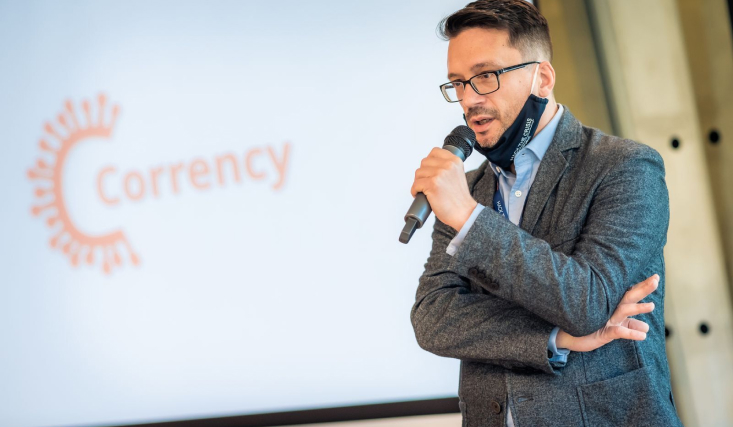
How the idea of the Corrency transaction system came about and where it is headed.
"Project Corrency was created as a reaction to the general quarantine lockdown. I was sitting at home, locked up with suspected COVID-19, and dark thoughts ran through my head. It was obvious to me that the next inevitable phase would occur. Economic collapse. All my life I imagine things that might happen. And they often come true..."
"I was inspired by three extraordinary books, namely “Leviathan” by Thomas Hobbes, “The Future of Money” by Bernard Lietaer, and “Zeppelin on the Moon” by Ondřej Neff.
Hobbes and Locke define the theory of the social contract. I remember studying economics and philosophy at the Prague University of Economics and Busíness. All the hours spent debating the meaning of society, the state, and the value of human life. There was only one conclusion. People are citizens. And the life of a citizen is what is at stake here. In times of crisis, there is a risk that families will be without cash, entrepreneurs without work, and the state without taxes. The state will have to figure out how to jumpstart the economy with widespread support, which it will distribute to the needy. Because that is the foundation and primary role of the state in times of crisis.
For Lietaer, I was inspired by commodity currency: bags of coal that had a time-limited use.
And the Zeppelin on the Moon? Genius author Ondřej Neff and his story of how to build an airship on the moon without an atmosphere. Why not? When enough people get excited about a seemingly crazy idea, they can make it happen together. This strengthened my conviction to implement the idea of Corrency.
Corrency must be:
I stopped treating the basic lack of *someone* putting into the system hundreds of millions to distribute to single mothers, the elderly, the unemployed, people on the brink of poverty, and explaining to them “why it’s good for everyone” to spend this money on targeted local merchants, as a limiting factor.
Many people assured me that the idea of Corrency is correct. I knew I had to surround myself with a strong execution team and wait to see if the society recognized that Corrency was worth building. I was convinced that if the idea is strong, sustainable and socially necessary, it will definitely be realized. Step by step.
The cooperation with the CzechInvest team resulted in me starting to take this idea not only as a theoretical concept.
There is no version of the development of our known universe in which humanity did not discover the wheel or America. In the context of the time, these were revolutionary inventions. Same as Corrency. It is difficult to imagine a post-Covid-19 world without hordes of unemployed hoteliers, bartenders and other professions, with governments having to deal with the plight of their constituents, some of whom will not have a livelihood.
I believed that Corrency would flourish. There are many places in the world where the system will be needed. The principle was described and published in a document that is part of the grant application in the Czech “Rise Up” program, which I submitted on 15th of May, 2020. A lot of time has passed since then. After a six-month marathon, we managed to get support from the Ministry of Industry and Trade for the implementation of the pilot project and a number of patronages from other important state and non-state institutions and companies.
Pepe Rafaj
